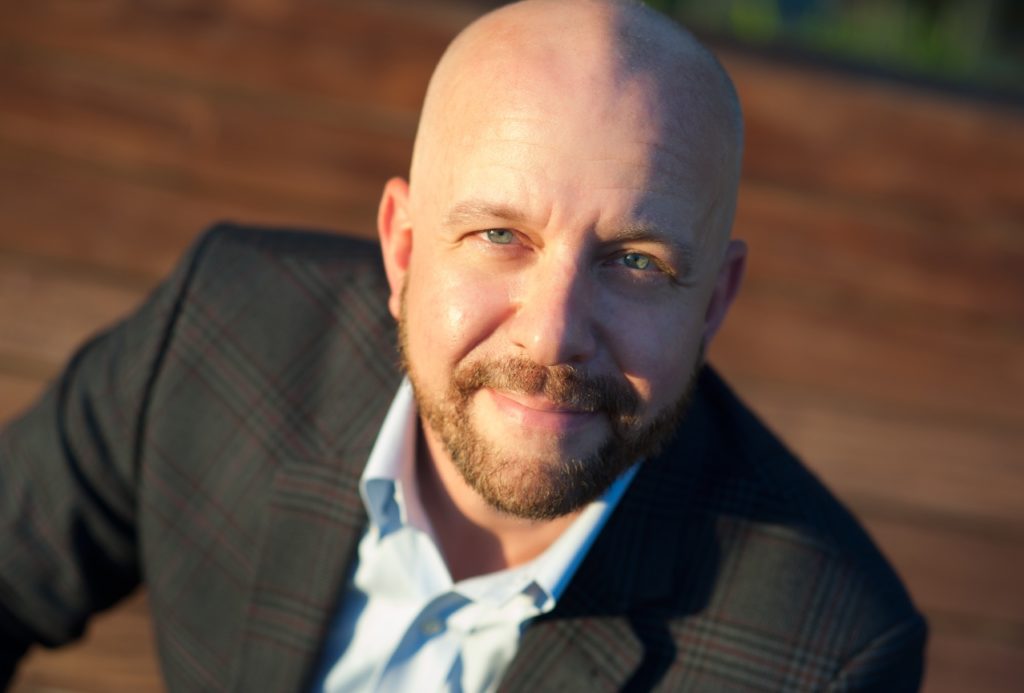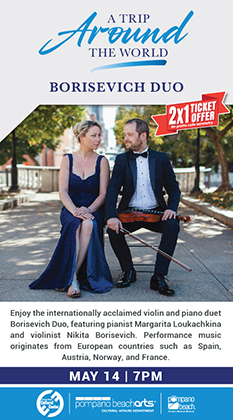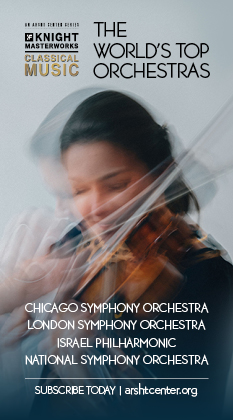Seraphic Fire wraps season with rewarding 20th-century works

James Bass conducted Seraphic Fire in a program titled “Mid-Century Modern” Friday night in Coral Gables.
A new style of art, architecture, and furniture design flourished in the 1940’s and succeeding decades. That wider artistic movement came to be known as “Mid-Century Modern” and music was no exception. Many composers rebelled against the atonality that Arnold Schoenberg and his disciples had proclaimed as the future of the art form. They sought differing paths of expression and artistic conception.
For its final program of the season, Seraphic Fire celebrated that musical era Friday night at Church of the Little Flower in Coral Gables. Associate conductor James K. Bass led works of ten American and Canadian composers.
Death and inner reflection were a common theme of many of the scores, encompassing World War II angst, postwar tensions and the struggles and triumphs of the civil rights era.
Two Pieces, Op. 42 by Samuel Barber, the program opener, reflected the acclaimed composer’s personal problems and trauma. Written shortly after the failure of Barber’s opera Anthony and Cleopatra and his ensuing depression, these pieces are darker and more unmoored than Barber’s more familiar instrumental works. “The Unknown Region” pictures Christmas as a sudden moment of hope on a bleak, grim night, Barber’s trademark lyricism mixed with tints of dissonance. Producing a wide dynamic spectrum, the group’s rapturous sound aptly conveyed the positive mood change at the news of Jesus’s birth. “To Be Sung on the Water” is more typical Barber with soaring harmonies and a swaying pulse, suggesting the slow rowing oars of a boat. Bass was totally in tune with Barber’s melodic flow and the singers’ beauty of execution caressed the ear.
The music of Alan Hovhaness (1911-2000) has fallen out of fashion. Often incorporating Armenian elements into his conservative tonal and melodic palette, he displayed a distinctive creative voice in a catalogue of some 500 works. Set to a text by Judith Malina, “The Brightness of Our Noon” deals with death in spare textures, the mood shifting from sunlight to dimness.
Selections from William Schuman’s Carols of Death are based on texts by Walt Whitman, part of his monumental Leaves of Grass. Schuman’s Whitman settings illustrate the special spark of inspiration that illuminates his ten symphonies which are due for revival. “The Unknown Region” paints death in shifting hues. After a tense opening “To All, to Each” turns into an uplifting chorale. These scores are both traditional and original, a fine example of Schuman’s creative mastery. Buttressed by the ethereal blend of female voices, it would be difficult to imagine the choir’s beautiful singing being surpassed.
A setting of “Ave Verum Corpus” by Canadian composer Imant Raminsh proved serene and soothing. The contingent of 21 voices, including eight vocalists from Seraphic Fire’s Ensemble Artists Program at UCLA, were skillfully blended by Bass. In two modernist settings of ancient texts by Halsey Stevens (1908-1989), “Weepe, O Mine Eyes” had a wonderful sense of stillness while “Go Lovely Rose” resounded in the mainstream American choral tradition, melodious but mixed with some harmonic surprises.
“Epitaph for Moonlight” by R. Murray Schafer was the most boldly original work of the evening. Schafer (1933-2021), one of Canada’s most renowned composers, wrote the score in response to astronaut Neil Armstrong’s historic moonwalk of 1969. Artists had long pictured the moon in idyllic, romantic terms. For Schaffer, the sight of rocks and dust dispelled those fantasies, and he wrote a brief work that conveyed his disappointment. Written in graphic notation (rather than traditional musical staffs) with no specific pitches and sections of aleatoric or chance music where singers adopt their own tempo, the opus suggests the eeriness of a horror film soundtrack or outer space epic. Brief, without wearing out its welcome, and adroitly conceived, Schafer’s epitaph was a diverting interlude and received some of the longest and loudest applause of the evening.
Three works by African American female composers radiated hope over adversity. As Bass pointed out, these women’s optimism was remarkable considering that they could not drink from a water fountain in some places at the time they penned their scores.
Waves of choral sonority engulfed the uplifting arc of Margaret Bonds’ “I Shall Pass Through the World but Once.” In the vein of “Deep River,” “Resignation” by Florence Price abounded in memorable thematic melody and depth of feeling. Sopranos Chelsea Helm and Rebecca Myers’ exquisite top tones conveyed Price’s moving vision of a future in heaven. Undine S. Moore’s toe-tapping “Daniel, Daniel, Servant of the Lord” was more in the mode of an old-fashioned spiritual, sung with rhythmic impetus. Brad Diamond’s heroic tenor solo brought apt fervor.
Chichester Mass by William Albright (1944-1998)) was written for the 900th anniversary of Chichester Cathedral in West Sussex, England. The short work mixes tart harmonic progressions with more conservative idioms. The “Gloria” recalls Poulenc’s version while an almost free-form “Sanctus” and recitative-like “Benedictus” precede a memorable final “Agnus Dei.” Shades of choral composer Eric Whitacre infused Albright’s catchy melody, almost a pop song that remains in the memory. The choir’s splendid corporate articulation and Bass’s superb pacing and control brought out the strengths of Albright’s potent setting.
This adventurous program capped a rewarding Seraphic Fire season. The chamber choir continues to exceed itself, both in repertoire and quality of performance.
Seraphic Fire repeats “Mid-Century Modern” 7:30 p.m. Saturday at All Saints Episcopal Church in Fort Lauderdale and 4 p.m. Sunday at St. Gregory’s Episcopal Church in Boca Raton. seraphicfire.org
Posted in Performances
Leave a Comment
Sat Apr 27, 2024
at 12:42 pm
No Comments



